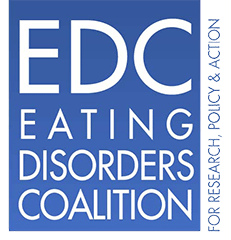Who can help but laugh at Isla Fisher’s charming character in the hit movie, Confessions of a Shopaholic?
Based on Sophie Kinsella’s best-selling novels, the story feels lighthearted and fun. We might even see a little of ourselves in Rebecca Bloomwood, who just can’t seem to resist the impulse purchases that, one by one, lead to a series of hilarious misadventures.
But for people who actually live with Compulsive Buying Disorder, life is anything but fun. These individuals deal with the brain disease of addiction, manifesting for them as a frustrating cycle of desire, impulsive action and shame that poses a constant threat to their emotional and financial health.
A closer look at “the smiled-upon addiction”
In our consumer culture, the way we look and the things we own can become deeply intertwined with our self-esteem and social status. Social media’s relentless focus on appearances and material goods amplifies this effect. This may be why Compulsive Buying Disorder, or CBD, is an addiction that we consider less serious than others, including addiction to alcohol, prescription drugs, food, gambling or sex.
What we tend to forget is that ANY addiction is dangerous to our health. We may also fail to see that people can become addicted to more than one substance or behavior over the course of their lives.
Addiction creates a relentless pursuit of our favorite substance or activity. When we get what we crave, we experience a great sense of reward, which may be felt as intense pleasure or relief from the pain life is sending our way.
In the beginning, it feels like we’re making a choice. We enjoy it; we tell ourselves we deserve it. But before long, our drug (or activity) of choice quickly becomes our drug of NO choice. When this happens, we know that addiction has robbed us of choice. The brain pathways involved in reward, decision-making and impulse control have been hijacked by the disease, which then takes on a life of its own.
Like any addiction, compulsive shopping has the power to destroy our finances and damage the close relationships that form the foundation of our lives. We need to stop making light of it and recognize it for the serious issue it actually represents for so many people. Often, these are individuals on the path to recovery who have had some success staying away from alcohol, drugs, food addiction or eating disorders. They have simply shifted their focus from their first “drug of no choice” to a new one.
What are the signs that a compulsive shopper can’t stop?
Mental health experts recognize that compulsive shopping, along with other forms of addiction, is similar to Obsessive Compulsive Disorder (OCD). People who can’t stop buying things – even when they clearly don’t need the things they buy – suffer from poor impulse control. It isn’t a matter of simply loving beautiful objects; they are following a strong inner urge that is relieved only when they complete a purchase.
You or someone you care about may be dealing with Compulsive Buying Disorder if:
- You think about shopping constantly – especially when you’re feeling bored, anxious, sad, angry or ashamed about yourself.
- You spend hours and hours looking at merchandise online and in person, searching out sales and new places to find things that interest you.
- You feel intensely excited when you’re shopping, leading to a sense of euphoria when you make a purchase.
- You tend to shop alone – or only with people who love shopping as much as you do.
- Because you don’t really need the things you buy, they tend to pile up. You may hide your purchases, return them (also known as shopping bulimia), sell them or even give them away.
- After the “buyer’s high” wears off, you often feel guilty and ashamed of your behavior. These bad feelings may even push you right into another shopping episode.
- Friends and family may be angry with you because shopping takes up so much of your time and attention. It may jeopardize your family’s financial security. Your spouse or partner may threaten to leave you if you can’t get your spending under control.
Compulsive buying can be overcome, one step at a time
At SunCloud Health, we have helped many people build the skills needed to overcome addiction, including the patterns that play out in compulsive shopping. Many times, this disorder occurs in combination with other addictions and mental health issues that may have been overlooked until now. Our caring, supportive staff will take the time needed to understand each issue in context and develop an integrated treatment plan that addresses each of your treatment needs with a unified approach.
You don’t need to spend yourself into bankruptcy or wait until your relationships fall into ruin. You can stop trying to control this brain-based disease with your brain alone – and finally get the help that will fully address your addiction, empowering you to heal.
If you or someone you love needs help with compulsive shopping, please get in touch with us today.




